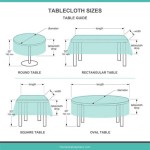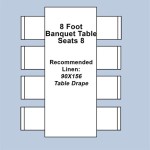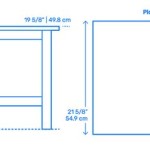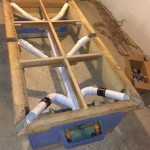The Enduring Appeal of Rustic Wooden Coffee Tables
Rustic wooden coffee tables represent a significant trend in interior design, characterized by their natural materials, handcrafted aesthetic, and ability to bring warmth and character to a living space. They stand in contrast to mass-produced, contemporary furniture, offering a unique, often one-of-a-kind piece that reflects individuality and an appreciation for the beauty of the natural world. This article will delve into the defining characteristics of rustic wooden coffee tables, explore the various types available, and discuss the benefits they offer in terms of style, durability, and sustainability.
Defining Characteristics of Rustic Wooden Coffee Tables
The term "rustic" encompasses a wide range of styles, but generally refers to furniture that emphasizes natural materials, handcrafted details, and a sense of aged authenticity. Several key features distinguish rustic wooden coffee tables from other types of furniture.
First, the primary material is, naturally, wood. However, not all wood qualifies as rustic. Typically, rustic coffee tables utilize hardwoods like oak, maple, pine, walnut, and reclaimed wood. The wood often retains its natural imperfections, such as knots, grain variations, and even minor cracks or splits. These imperfections are not seen as flaws but rather as intrinsic elements that contribute to the table's unique character. The presence of live edges – the natural edge of the wood left intact – is a common characteristic in many rustic designs, further enhancing their organic appeal.
Second, the construction of a rustic coffee table often showcases handcrafted techniques. While some pieces may incorporate modern manufacturing processes, the emphasis is on creating a piece that appears to be made by hand. This can involve joinery methods like dovetail joints, mortise and tenon joints, or even simpler techniques that highlight the raw nature of the wood. The finish applied to the wood is also crucial in achieving a rustic aesthetic. Often, a matte or satin finish is preferred over a high-gloss sheen. The purpose is to protect the wood while preserving its natural texture and appearance. Wax finishes, oil finishes, and distressed paints are commonly used to enhance the rustic charm.
Third, the overall design of a rustic coffee table often leans towards simplicity and functionality. Elaborate carvings or intricate details are typically avoided. Instead, the focus is on showcasing the natural beauty of the wood and creating a sturdy, practical piece of furniture. Many rustic coffee tables feature chunky legs, thick tops, and straightforward designs that exude a sense of solidity and permanence. The inclusion of metal accents, such as wrought iron legs, hardware, or decorative elements, can also contribute to the rustic aesthetic, providing a contrast in texture and material.
Types of Rustic Wooden Coffee Tables
The broad category of rustic wooden coffee tables encompasses a diverse range of styles and designs, each with its own unique characteristics. Understanding these different types can help consumers choose a table that best suits their individual preferences and the overall aesthetic of their living space.
Reclaimed wood coffee tables are a popular choice for those seeking an eco-friendly and character-rich piece of furniture. These tables are crafted from wood salvaged from old barns, factories, or other structures. The wood often bears the marks of its previous life, such as nail holes, saw marks, and weathering, adding to its historical significance and visual appeal. Reclaimed wood coffee tables are particularly well-suited for industrial-style or farmhouse-inspired interiors.
Live edge coffee tables showcase the natural edge of the wood, creating a visually striking and organic design. These tables are typically made from a single slab of wood, allowing the natural contours of the tree to be prominently displayed. Live edge coffee tables are often paired with metal legs to create a modern and industrial contrast, or with wooden legs for a more traditional rustic look. The unique shape and grain patterns of each live edge slab ensure that every table is a one-of-a-kind piece.
Log coffee tables are crafted from sections of tree trunks or branches, often retaining their natural bark and shape. These tables are particularly well-suited for cabins, lodges, or other spaces with a strong connection to nature. Log coffee tables can be simple in design, consisting of a single log section with a flat top, or more elaborate, incorporating multiple logs or branches to create a more intricate structure. They often feature a clear coat finish to protect the wood while preserving its natural appearance.
Farmhouse coffee tables typically feature a more refined rustic aesthetic, characterized by clean lines, painted finishes, and subtle distressing. These tables are often inspired by traditional farmhouse furniture and evoke a sense of warmth and comfort. Farmhouse coffee tables may incorporate details such as turned legs, planked tabletops, or storage shelves. They are a versatile option that can complement a wide range of interior styles, from traditional to modern farmhouse.
Storage coffee tables combine the rustic aesthetic with practical functionality. These tables feature built-in storage compartments, such as drawers, shelves, or lift-top mechanisms, providing a convenient place to store books, magazines, blankets, or other items. Storage coffee tables are particularly useful in smaller living spaces where maximizing storage is essential. They can be crafted from a variety of rustic materials, including reclaimed wood, pine, and oak.
Benefits of Choosing a Rustic Wooden Coffee Table
Rustic wooden coffee tables offer a number of benefits that extend beyond their aesthetic appeal. These benefits include durability, sustainability, and the ability to create a warm and inviting atmosphere in a living space.
Durability is a key advantage of rustic wooden coffee tables. The use of hardwoods and solid construction techniques ensures that these tables are built to last. Unlike furniture made from particleboard or other composite materials, rustic wooden coffee tables can withstand years of use and abuse without showing significant wear and tear. The natural imperfections in the wood, such as knots and grain variations, can actually enhance the table's durability by providing greater resistance to warping and cracking. The solid construction also means that rustic coffee tables are less likely to wobble or become unstable over time.
Sustainability is another important consideration for many consumers. Rustic wooden coffee tables, particularly those made from reclaimed wood, are an environmentally friendly choice. By utilizing salvaged wood, these tables help to reduce deforestation and minimize waste. Even when new wood is used, choosing sustainably harvested timber can help to ensure that forests are managed responsibly. The durability of rustic wooden coffee tables also contributes to their sustainability. By lasting for many years, they reduce the need for frequent replacements, which can consume significant resources. Choosing finishes that are low-VOC or water-based can further minimize the environmental impact of the table.
Aesthetic appeal is, of course, a primary reason why people choose rustic wooden coffee tables. These tables can add warmth, character, and a sense of history to any living space. The natural beauty of the wood, combined with the handcrafted details, creates a unique and inviting atmosphere. Rustic coffee tables can be used to complement a variety of interior styles, from traditional to modern. They can serve as a focal point in a room, drawing the eye and creating a sense of visual interest. The natural textures and colors of the wood can also help to create a more calming and relaxing environment. Moreover, the uniqueness of each piece guarantees a conversation starter and a reflection of the homeowner's personal style.
In summary, rustic wooden coffee tables are more than just functional pieces of furniture; they are expressions of craftsmanship, sustainability, and a connection to the natural world. Their durability, unique aesthetics, and versatility make them a valuable addition to any living space, enhancing both its style and its ambiance.

Rustic Wooden Coffee Table Live Edge Black Walnut Sofa Mid Century Modern Metal Base

Rustic Coffee Table Made From Solid Chunky Wood With Shelf Finland

Reclaimed Wood Rectangle Coffee Table Kase Custom

Rustic Coffee Table Wood Pine Country

Industrial Acacia Wood Coffee Table Rustic Furniture

Rustic Farmhouse 137 Cm Coffee Table Pottery Barn

Rustic Teak Wood Coffee Table Brown Olivia May Target

Firstime Co 48 In Rustic Espresso Large Rectangle Wood Coffee Table With Casters 70084 The Home Depot

Rustic Reclaimed Wood Coffee Table Robinson Interiors Ltd

Coffee Table For Living Room Wooden Rustic Round Mid Century Brown Top Live Edge Unique Solid Modern Farmhouse Side Small Tables
Related Posts








